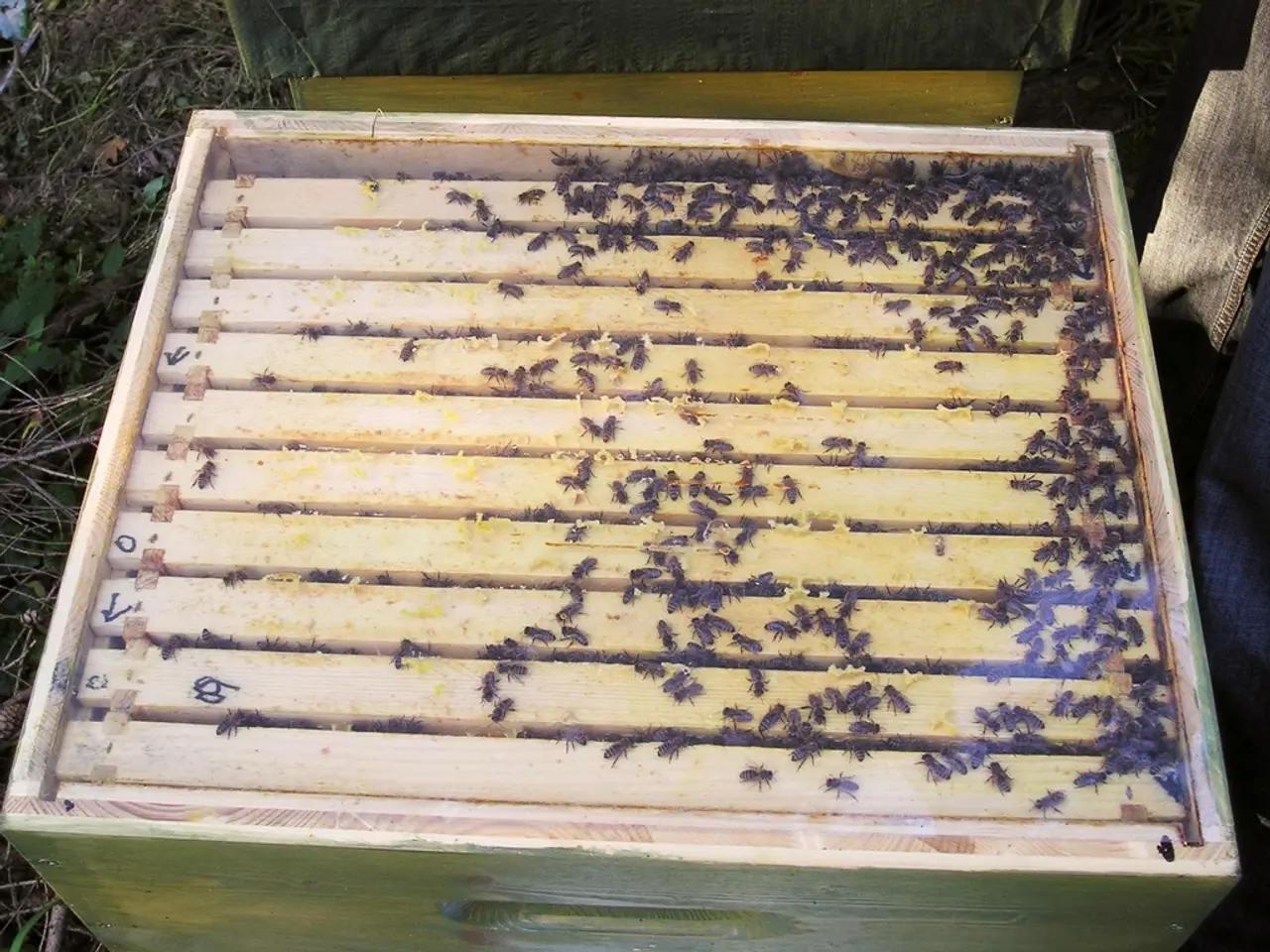Large-Scale Farm Earns $75 Million by Collecting and Utilizing Fly Excrement
In a world grappling with climate change and the need for sustainable farming practices, black soldier flies (BSF) are emerging as unlikely heroes. These insects, often overlooked, are making a significant impact in waste management, soil health, and carbon sequestration.
BSF larvae are efficient decomposers, converting organic waste such as food scraps and agricultural by-products into valuable biomass and frass. This process not only reduces landfill waste but also lowers greenhouse gas emissions, particularly methane, which is produced under anaerobic landfill conditions.
The frass produced by BSF larvae is a nutrient-rich byproduct that enhances soil fertility and promotes nutrient cycling, improving overall soil health. This, in turn, supports soil microbial communities and can be further decomposed by other organisms to make nutrients more accessible to plants, fostering ecosystem resilience and productivity. Healthy soils contribute to carbon sequestration, storing carbon in stable forms, which helps mitigate atmospheric CO2 levels.
One farm leading the way in BSF farming is Chapul Farms, owned by Pat Crowley. Based in McMinnville, Oregon, Chapul Farms provides frass to nearby businesses, vineyards, and cannabis growers. The farm's efforts have resulted in increased market value and customer satisfaction, as reported by Jason Lampman, owner of State 3 Farm, who has been using frass for eight months.
Ramsey McPhillips, owner of a 600-acre farm in McMinnville that has been in his family since 1862, is another advocate for BSF farming. McPhillips, who calls his area "McMintopia" due to its progressive politics, cheap energy, and surrounding farms in wine country, hosts BSF on his farm. He is also involved in a privately-funded project with a Kentucky beer brewery and whiskey distillery to decompose spent grains using flies.
The potential of BSF in scrap-scavenging could offset the greenhouse gas emissions equivalent to 42 coal-fired power plants annually in the U.S. Chapul Farms, for instance, receives food waste from vineyards, specifically hard rinds and stems that would otherwise go to landfill.
The network of fly farms not only decomposes food waste but also farms the flies as protein-rich feed and harvests their frass. This approach provides a buffer against global market vagaries, such as when Russia's invasion of Ukraine curtailed fertilizer supply and drove up prices in 2022.
BSF farming is also more sustainable than traditional livestock farming, requiring less land and water and emitting significantly fewer greenhouse gases. Advanced BSF farming technologies, such as climate-controlled systems, enable faster and more efficient organic waste processing year-round, increasing biomass output without additional feedstock and making BSF farming scalable for waste management and animal feed production.
In summary, black soldier flies support climate solutions through food waste decomposition, soil health improvement, reduced greenhouse gas emissions and resource use, and scalability and efficiency. Together, these capabilities allow black soldier flies to contribute significantly to reducing greenhouse emissions, improving soil carbon storage, and supporting sustainable circular bioeconomies.
- In the community of progressive farms in McMinnville, Oregon, black soldier flies (BSF) are being farmed by farmers like Pat Crowley and Ramsey McPhillips, who see the potential of BSF in waste management and soil health improvement.
- The nutrient-rich frass produced by BSF larvae is being used by nearby businesses, vineyards, and cannabis growers, such as State 3 Farm, to enhance soil fertility and promote nutrient cycling, contributing to the overall health of the environment.
- BSF farming is attracting interest from various industries, demonstrating its potential to contribute to environmental science and climate-change mitigation efforts, including science, finance, and real-estate sectors, due to its ability to reduce greenhouse gas emissions and lower waste management costs.
- Artists and cultural enthusiasts might also embrace BSF farming as a unique and sustainable solution, given its symbiotic role in ecosystems and its ability to improve soil health and carbon sequestration, fostering a harmonious relationship between nature and urban areas.
- The scalability and efficiency of BSF farming technologies, such as climate-controlled systems, make it a promising solution for global-scale environmental challenges, particularly in the face of resource scarcity and the need for sustainable infrastructure, as the world continues to navigate climate change and the transition towards a circular bioeconomy.




